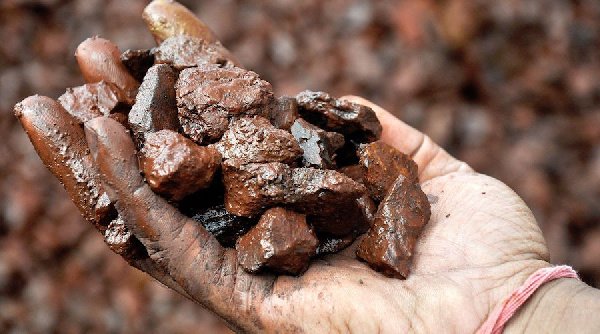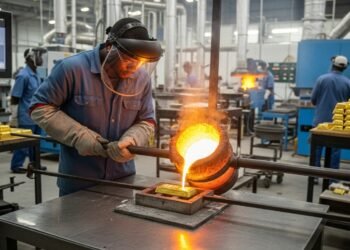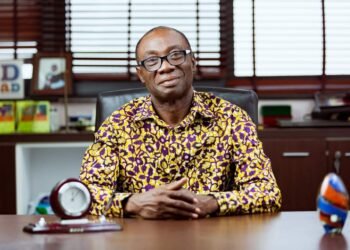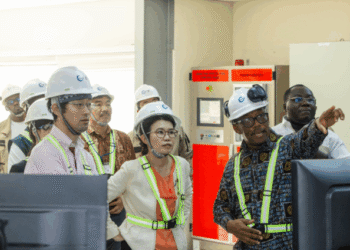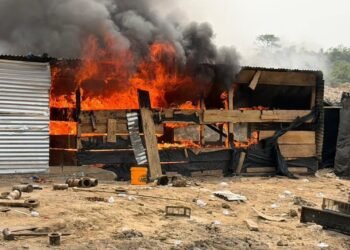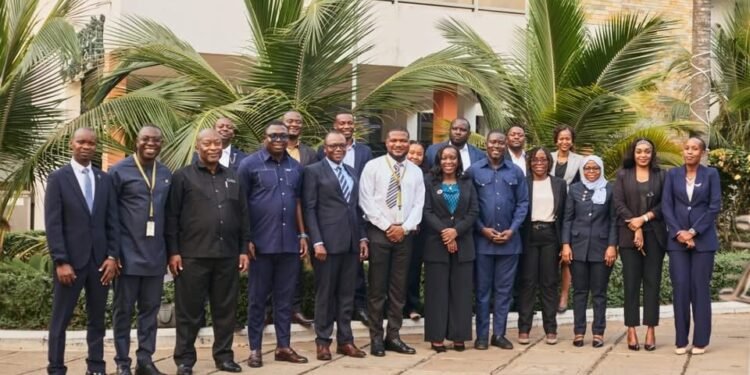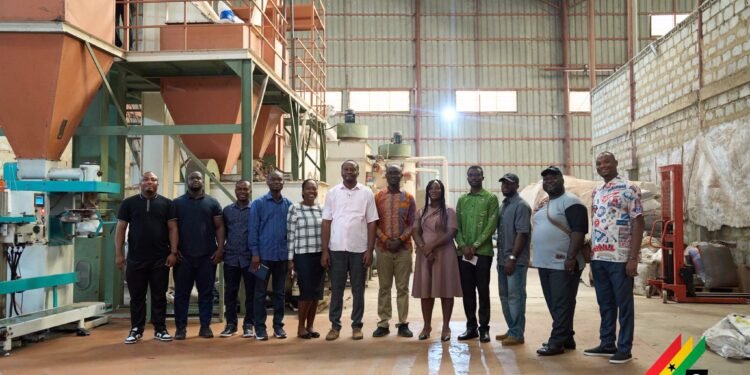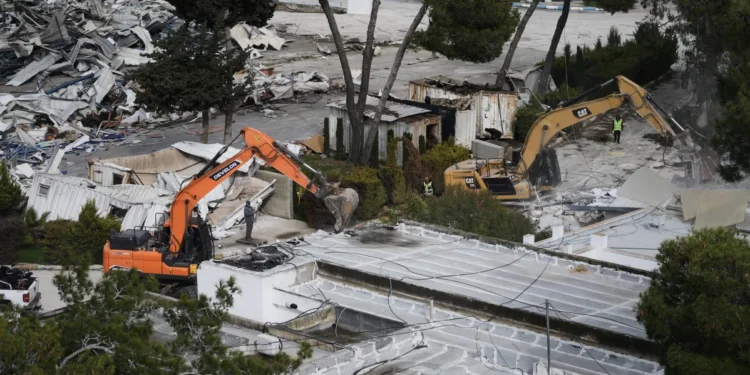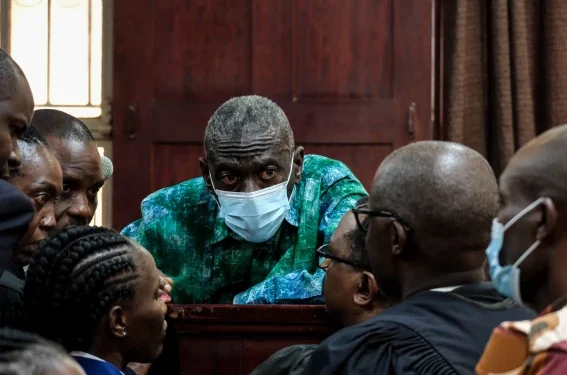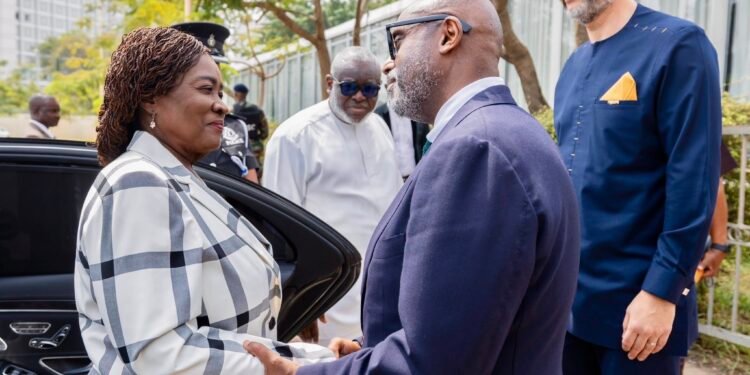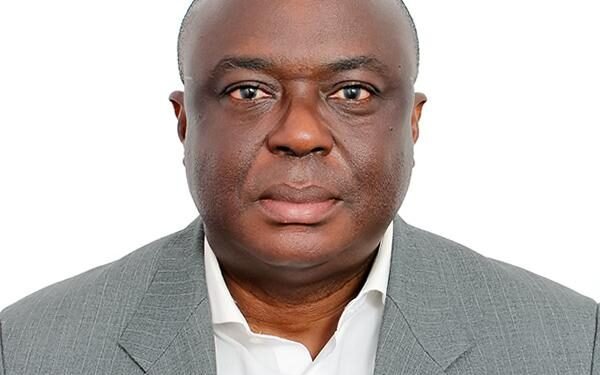Ghana is on the cusp of joining the ranks of the world’s top producers of high-grade iron ore, following major discoveries that could reshape its industrial future, according to the Chief Executive Officer of the Minerals Commission, Isaac Andrews Tandoh.
Speaking on the country’s mining outlook, Mr. Tandoh noted that this marks a new chapter in Ghana’s mining history, one that moves beyond raw material extraction to industrial transformation.
“In fact, the two deposits that are being explored in Ghana give one of the best value and grade around the world.”
Isaac Andrews Tandoh, Chief Executive Officer of the Minerals Commission
The Minerals Commission CEO described the discoveries as “transformational,” positioning Ghana to play a major role in the global iron and steel value chain.
He stressed that the nation’s resource development strategy is now anchored on value addition, sustainability, and job creation, in line with the government’s long-term industrialisation vision. “Ghana’s mining narrative is evolving from resource extraction to industrial transformation,” he explained.
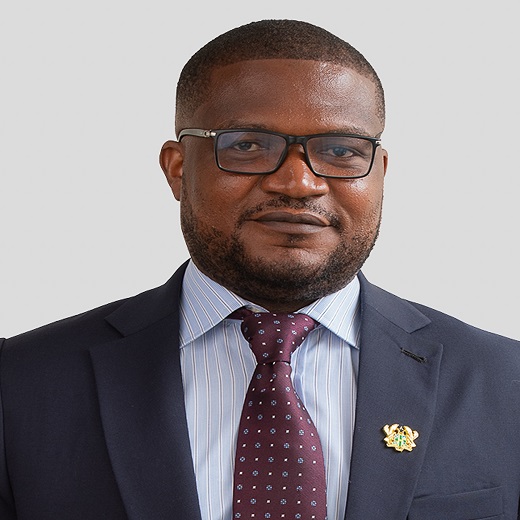
“Value addition is a priority for us. That is why the government has already taken steps to implement policy decisions to promote value addition to our mineral resources with strong state participation.”
Isaac Andrews Tandoh, Chief Executive Officer of the Minerals Commission
According to Mr. Tandoh, the government has established key institutional frameworks to drive this agenda, notably the Ghana Integrated Aluminium Development Corporation (GIADEC) and the Ghana Integrated Iron and Steel Development Corporation (GIISDEC).
These state-backed agencies are tasked with ensuring that the country’s mineral wealth is refined, processed, and utilised domestically to create broader economic benefits.
He said this integrated approach aims to transform Ghana into a regional hub for mineral value addition, capable of creating thousands of jobs, attracting private capital, and retaining greater value from its natural resources within the local economy.
Industrial and Economic Potential
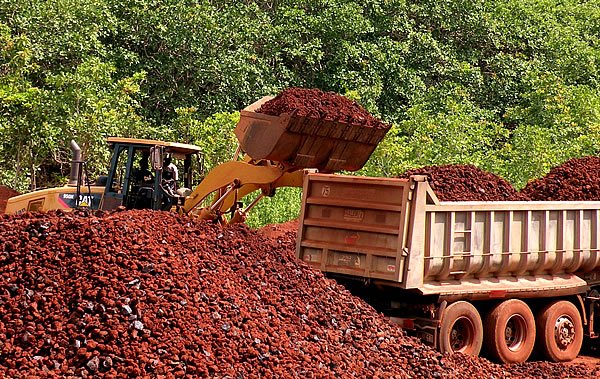
Mining and industrial experts have long argued that the full development of Ghana’s iron ore deposits could serve as a cornerstone for a new era of economic self-reliance.
If developed strategically, the high-grade iron deposits could support the establishment of a robust iron and steel industry, reducing Ghana’s dependence on imports and strengthening domestic manufacturing capacity.
The successful operationalisation of these iron projects, Mr. Tandoh added, would align perfectly with the government’s ambition to build a modern industrial economy underpinned by local production and export competitiveness.
“Our focus is to ensure that the wealth beneath our soil contributes directly to national growth and improves the living standards of Ghanaians.
“We must move from exporting raw minerals to adding value here at home.”
Isaac Andrews Tandoh, Chief Executive Officer of the Minerals Commission
This push for domestic processing reflects a broader shift across Africa, where resource-rich countries are seeking to break free from the traditional extractive model that exports raw materials and imports finished goods at significantly higher prices.
Ghana, with its strategic infrastructure and established mining framework, is well-positioned to lead this transformation.
Strengthening Governance
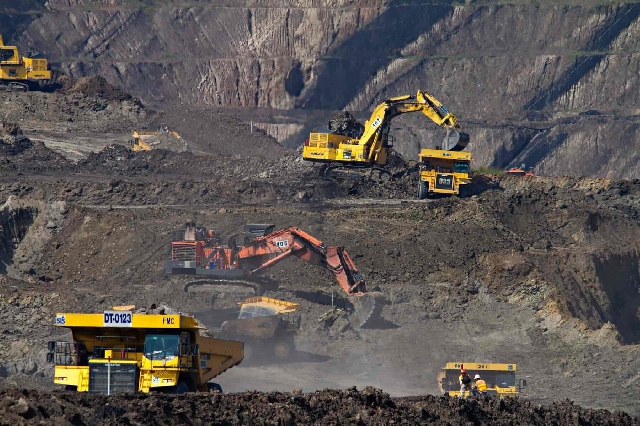
Beyond the technical and industrial aspects, the Minerals Commission is also prioritising transparency and accountability in resource governance.
Mr. Tandoh highlighted the critical role of the media in ensuring that citizens are informed about how mineral resources are managed and utilised.
“The media is a critical link in the work of our government.
“They are the pivot that drives transparency, advocacy, and awareness in the industry.”
Isaac Andrews Tandoh, Chief Executive Officer of the Minerals Commission
By deepening partnerships with journalists and civil society organisations, the Commission hopes to ensure that mining operations are conducted responsibly and that the economic benefits are distributed equitably.
The growing focus on high-grade iron ore, alongside existing investments in gold, bauxite, and manganese, places Ghana at the forefront of Africa’s new mining frontier.
With the global transition toward sustainable industrialisation and low-carbon steel production, Ghana’s premium iron ore could become a highly sought-after commodity in the years ahead.
Mr. Tandoh reaffirmed the Minerals Commission’s commitment to ensuring that these opportunities are harnessed responsibly and sustainably.
As Ghana prepares to unlock its iron ore potential, the challenge ahead lies not only in extraction but in leveraging innovation, partnerships, and sound policy to transform natural resources into long-term national wealth.
READ ALSO: BoG’s $1.15bn FX Injection Sparks Clash with IMF and World Bank Over Cedi Stabilization

